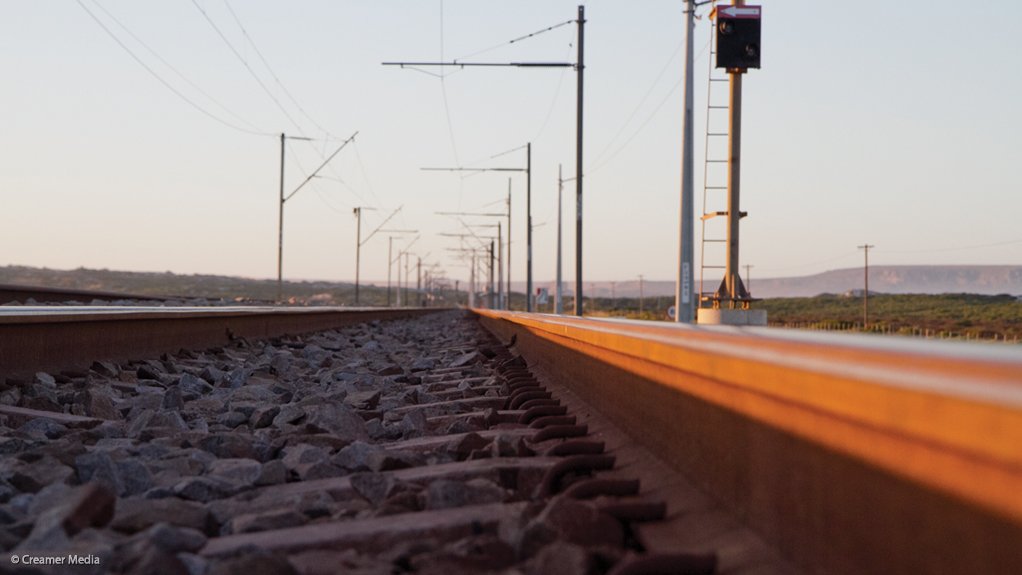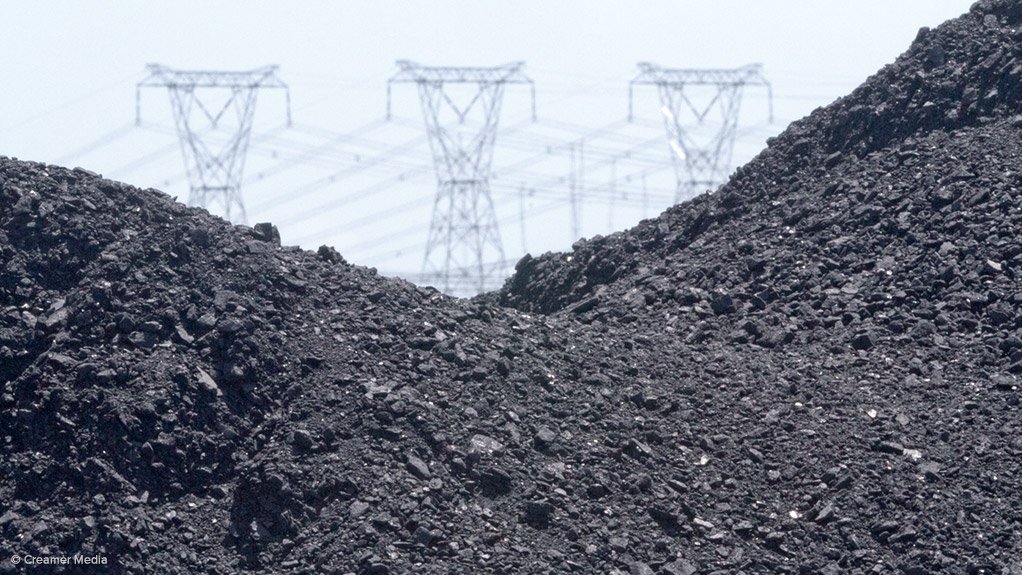Suitable rail infrastructure can facilitate access to increased coal resources



INCREASED ACCESSIBILITY The regional linking of infrastructure will make it easier for South Africa to tap into the coal resources of neigbouring countries
Photo by Duane Daws
RISING DEMAND Cheaper coal mining and distribution and more efficient power generation could increase the usefulness of and demand for South Africa's
Photo by Duane Daws
The establishment and maintenance of efficient and accessible rail and port infrastructure, and the regional linking thereof, could enable State-owned electricity provider Eskom to access a reliable supply of affordable coal, says mining engineering and strategic consultancy services firm Ukwazi Group.
Ukwazi Group director and principal engineer Jaco Lotheringen tells Mining Weekly that while South Africa’s neighbouring countries, such as Botswana, Zimbabwe and Mozambique, have large deposits of inexpensive and appropriate- quality coal, these resources have historically been underused.
Tapping into some of the coal resources in these countries, specifically Botswana, and into coal resources in South Africa’s Limpopo province, for example, could significantly increase the amount of coal that South Africa can exploit over the medium and longer term, he says.
“Some of the larger, shallower deposits in South Africa’s neighbouring countries can be mined safely, at low cost and at reasonable volumes to supplement the current coal mining operations and higher-risk lower-volume projects in the Highveld coalfield of South Africa,” Lotheringen explains.
With the improved amount of coal reserves, as a result of gaining increased access to the neighbouring coal resources, South Africa will also be able to supply some of the coal to international markets.
Surviving Market Conditions
Lotheringen tells Mining Weekly that mining companies have been increasingly positioning themselves in the past few years to be able to create increased shareholder value by exploiting the coal reserves and coal products in their possession.
However, he says the assumptions and forecasts on which these coal industry investments and expansion programmes were based are not accurate for the current and foreseeable future market environment.
“Therefore, responsible and proactive mining houses constantly re-evaluate their business strategies, based on the state of the export markets, and consider aspect, such as the quality of their coal products and which markets they supply,” he says.
Further, mines, especially smaller opencast operations that want to survive trying market conditions, should do proper planning and undertake operational improvements to increase efficiencies, says Lotheringen.
“These improvements are normally associated with the increased simplicity and predictability of mining. Enforcing simple opencast mining principles, such as straight mining faces with suitable equipment access, water management and establishing rollover mining as soon as possible, can have a material impact on a mining operation’s safety and cost efficiencies.”
Lotheringen says the coal mining industry also needs to work together in terms of ensuring that each mine in the coal supply chain is well positioned to secure its sustainable economic future.
He says this is important, as not all coal mines with exposure to the export markets are guaranteed to survive difficult market conditions, which sometimes makes it necessary for them to have access to alternative and reasonable local markets.
“Opportunities do exist for suppliers of coal to local power and infrastructure utilities through collaboration, efficiency and a bit of repositioning,” says Lotheringen.
Coal Demand
Lotheringen tells Mining Weekly that cheaper coal mining and distribution and more efficient power generation will increase the usefulness and demand for South Africa’s coal, adding that this expectation is derived from the Jevons paradox formulated in the nineteenth century by Stanley Jevons.
“In short, technological progress cannot be relied upon to reduce the consumption of our coal resources,” he says, adding that Jevons observed that the increased efficiency of the use of coal actually led to increased consumption thereof.
Comments
Press Office
Announcements
What's On
Subscribe to improve your user experience...
Option 1 (equivalent of R125 a month):
Receive a weekly copy of Creamer Media's Engineering News & Mining Weekly magazine
(print copy for those in South Africa and e-magazine for those outside of South Africa)
Receive daily email newsletters
Access to full search results
Access archive of magazine back copies
Access to Projects in Progress
Access to ONE Research Report of your choice in PDF format
Option 2 (equivalent of R375 a month):
All benefits from Option 1
PLUS
Access to Creamer Media's Research Channel Africa for ALL Research Reports, in PDF format, on various industrial and mining sectors
including Electricity; Water; Energy Transition; Hydrogen; Roads, Rail and Ports; Coal; Gold; Platinum; Battery Metals; etc.
Already a subscriber?
Forgotten your password?
Receive weekly copy of Creamer Media's Engineering News & Mining Weekly magazine (print copy for those in South Africa and e-magazine for those outside of South Africa)
➕
Recieve daily email newsletters
➕
Access to full search results
➕
Access archive of magazine back copies
➕
Access to Projects in Progress
➕
Access to ONE Research Report of your choice in PDF format
RESEARCH CHANNEL AFRICA
R4500 (equivalent of R375 a month)
SUBSCRIBEAll benefits from Option 1
➕
Access to Creamer Media's Research Channel Africa for ALL Research Reports on various industrial and mining sectors, in PDF format, including on:
Electricity
➕
Water
➕
Energy Transition
➕
Hydrogen
➕
Roads, Rail and Ports
➕
Coal
➕
Gold
➕
Platinum
➕
Battery Metals
➕
etc.
Receive all benefits from Option 1 or Option 2 delivered to numerous people at your company
➕
Multiple User names and Passwords for simultaneous log-ins
➕
Intranet integration access to all in your organisation




















